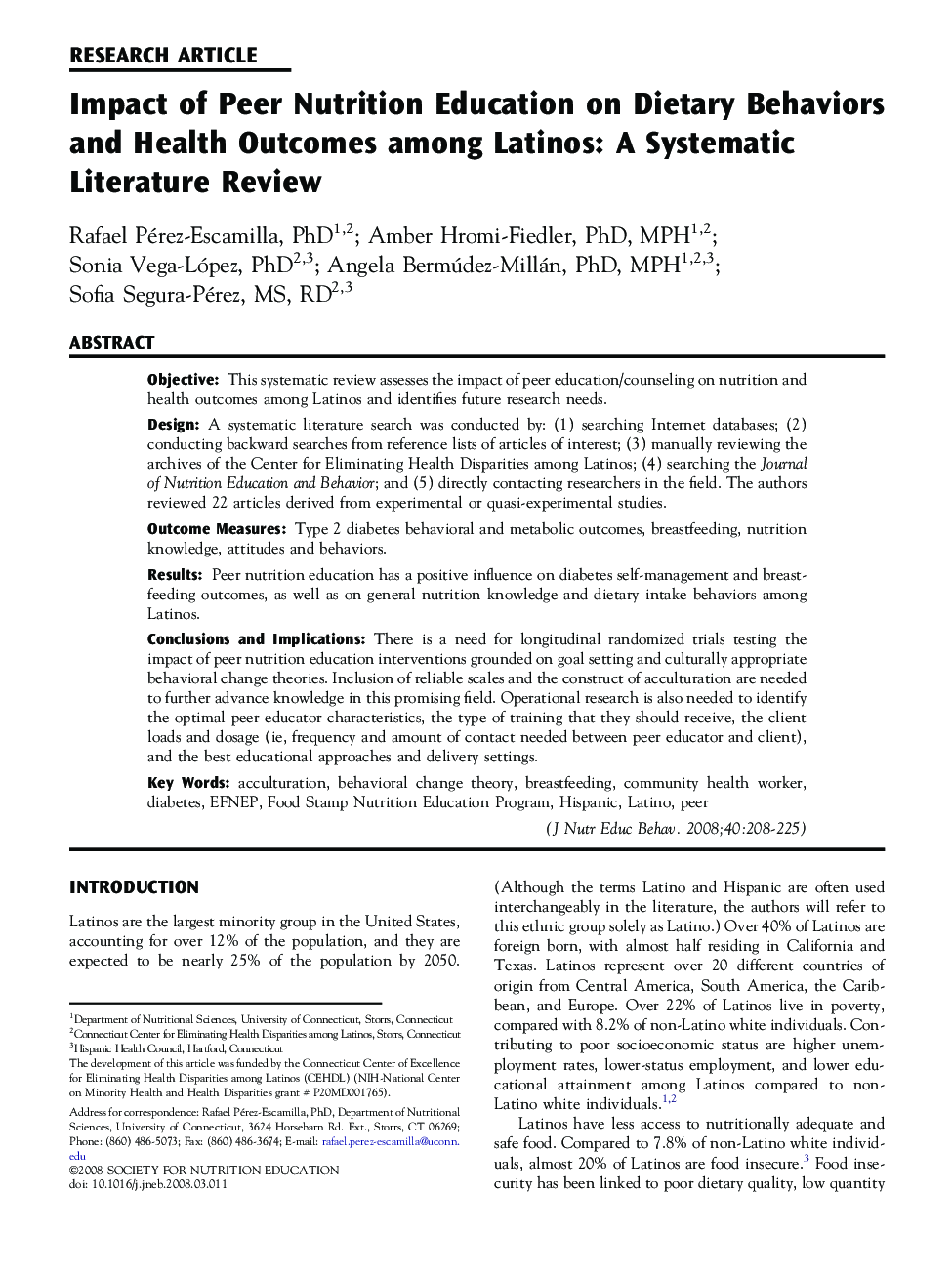| Article ID | Journal | Published Year | Pages | File Type |
|---|---|---|---|---|
| 362604 | Journal of Nutrition Education and Behavior | 2008 | 18 Pages |
ObjectiveThis systematic review assesses the impact of peer education/counseling on nutrition and health outcomes among Latinos and identifies future research needs.DesignA systematic literature search was conducted by: (1) searching Internet databases; (2) conducting backward searches from reference lists of articles of interest; (3) manually reviewing the archives of the Center for Eliminating Health Disparities among Latinos; (4) searching the Journal of Nutrition Education and Behavior; and (5) directly contacting researchers in the field. The authors reviewed 22 articles derived from experimental or quasi-experimental studies.Outcome MeasuresType 2 diabetes behavioral and metabolic outcomes, breastfeeding, nutrition knowledge, attitudes and behaviors.ResultsPeer nutrition education has a positive influence on diabetes self-management and breastfeeding outcomes, as well as on general nutrition knowledge and dietary intake behaviors among Latinos.Conclusions and ImplicationsThere is a need for longitudinal randomized trials testing the impact of peer nutrition education interventions grounded on goal setting and culturally appropriate behavioral change theories. Inclusion of reliable scales and the construct of acculturation are needed to further advance knowledge in this promising field. Operational research is also needed to identify the optimal peer educator characteristics, the type of training that they should receive, the client loads and dosage (ie, frequency and amount of contact needed between peer educator and client), and the best educational approaches and delivery settings.
